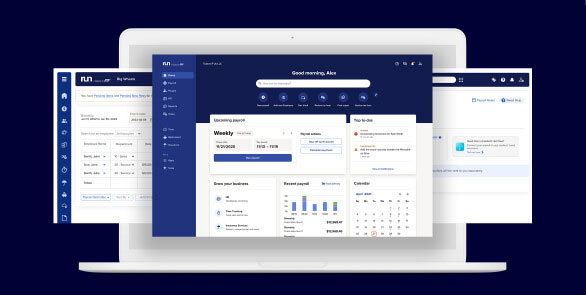Businesses in certain industries – health care, information technology, etc. – may require employees to be available to work when duty calls. But what happens when the workers are waiting for their assignments? In some cases, on-call individuals may be entitled to on-call pay, whether they are actively working or not.
Table of Contents
What is on-call pay?
On-call pay is compensation for hours when non-exempt employees are “engaged to wait.” The employer limits the employees' movement and time while they wait for work to start.
How does on-call pay work?
Non-exempt employees who are on-call receive their regular pay rate unless they work or wait to work more than 40 hours a week. When that happens, the Fair Labor Standards Act (FLSA) states that on-call pay should be paid at the overtime rate.
When should employers provide on-call pay?
If employers limit the freedom of non-exempt employees, they may have to provide on-call pay. This concept generally means the employees are obligated to wait for work and must remain at the employer’s location or within a certain proximity of the workplace. For example, a firefighter who is on call and required to stay in the fire station until a fire occurs may be entitled to on-call pay.
When does on-call pay not apply?
On-call pay is not necessary when employees are waiting to engage rather than engaged to wait. They may be on-call at home while attending to personal matters or may notify their employer where they can be reached if they go out. In such cases, because the employer has not restricted the employees’ physical movement or use of time, the hours spent waiting for work are not compensated.
Note that the difference between engaged to wait and waiting to engage depends on the individual circumstances in each case. Employers unsure of their employees' entitlement to on-call pay should consult an attorney.
Jobs that commonly have on-call hours
Due to the unpredictable nature of their work, first responders and health care professionals often need to be on-call. This requirement ensures they can quickly and efficiently attend to urgent situations or provide medical care.
Yet, on-call pay is not limited to emergencies and life-saving work. Employment in any of these additional fields may include on-call time:
- Customer service
- Information technology
- Building maintenance
- Veterinary care
- Journalism
- Aviation
State laws about on-call pay
Individual states may have on-call pay laws that differ from the FLSA. Employers should familiarize themselves with such regulations when determining if an employee’s time spent waiting for an assignment is or is not considered work time.
Frequently asked questions about on-call pay
What does on-call pay mean?
On-call pay means that employees receive compensation while waiting for work. Their employer limits their freedom, preventing them from using idle time for personal matters. This situation is known as engaged to wait.
How do you calculate on-call pay?
Generally, the on-call pay rate is the same as a non-exempt employee’s regular rate of pay. The overtime rate may apply, however, if the total hours worked qualifies for overtime while the employee is on call. In either case, calculating hourly pay for on-call employees means multiplying the applicable pay rate by the number of hours spent working or on-call.
Is on-call the same as overtime?
On-call is not the same as overtime. However, if non-exempt employees are engaged to wait, their time spent on-call counts towards their total hours worked. And if the employees work more than 40 hours per week, they are eligible for overtime pay, whether they are actively working or on-call.
What is an on-call schedule?
An on-call schedule outlines which employees will be on-call and at what times. This advanced notice helps employers meet demand and allows employees to arrange their personal lives accordingly. To avoid burnout and maintain a positive work-life balance, employers usually rotate on-call shifts.
This guide is intended to be used as a starting point in analyzing on-call pay and is not a comprehensive resource of requirements. It offers practical information concerning the subject matter and is provided with the understanding that ADP is not rendering legal or tax advice or other professional services.





